dir="ltr" style="text-align: left;">
“Aj to Sunday hai… Din bhar khane ka din hai”
It was one of my favorite childhood rhymes. I used to have art classes on every Sunday morning 8 AM – 11 AM. And I used to come back home at around 11.30 AM with the hunger of decades. And these were the lines my mother used to find me singing.
Though I used to listen to an advertisement on TV during that period saying,”Sunday ho ya Monday roj khao aandey” I always hated bread and eggs as Sunday breakfast. I still crave for something special, something unusual which we can’t have on weekdays. Thus I want my Sunday mornings to be special, remarkable.
Yes, a petku like me will always crave for luchi, poori, radhaballavi and all those deep fried items on Sunday breakfasts. Those days it was easy to make an order to mom and wait outside the kitchen sneaking and peeping. But now, time has changed. Here I’m the in-charge of the kitchen. Those golden days are gone for me:(
This Sunday I woke up little early. So hungry me immediately wanted to have something special. But at the same time I was looking for a healthy option for a change. And I found some sprouted moong in the freezer. I simply thought of sprouted moong chaat with some fresh garlic bread. But as it was Sunday even Mr. Bhatti was in mood of Chutti. So I had to drop the idea of having Moong-chaat. And there was demand of paratha on breakfast table.
After little R&D finally I decided to move to my experiment mode though I was not in mood at all. Not on Sunday morning please.In the mean time I shrugged off the lunch responsibility already. So I was happy to proceed further. I already decided to use that sprouted moong anyway. Firstly I thought of making tikkis with it then scrapped the idea as I had no plans to gobble down deep fried items. Finally, the idea of stuffed paratha stuck my mind. And I tried Moong Sprout Paratha which came out so tasty that it got immediately listed on my family’s ‘Favorite Sunday breakfast list’. I’m completely satisfied with the final product.
I dint use all-purpose flour as I was feeling guilty for not having healthy breakfast. I opted for wheat flour. You can use all-purpose flour and you can also deep fry them. Here is my recipe of Moong Sprout Paratha.
Ingredients for filling:
Moong dal (whole): 200 gms.
Garlic: 7-8 cloves (See Tips)
Fresh green chillies: 3-4 (adjust the heat)
Salt to taste
Chilli flakes: 1 tsp
Fresh coriander leaves: handful (optional) (See Tips)
Ingredients for tempering:
Asafetida/ hing: 1 pinch
Fenugreek seeds: 1 tsp
Mustard seeds: 1 tsp
Sugar: 1/2 tsp
Oil: 1-2 tbsp
Ingredients for paratha:
Wheat flour: 2 cups
Salt: 1 tsp
Caster sugar: ½ tsp
Oil: 1-2 tsp + 1 tsp of oil per paratha for frying
Water: 1/3 cup
Preparation:
Soak moong dal in a bowl of water for overnight. In the morning you will see moong has sprouted little. Change the water and keep them soaked for few more hrs. to get better sprouts. I already had sprouted moong in my freezer and dint have that much time further so I just used as they were.
Wash the moong thoroughly with green chillies and garlic cloves. (See Tips)
Grind them all together in a blender to make a smooth paste. Try not to use any water at all. Use your coriander leaves too to make the paste, if you are using any. (See Tips)
Keep the paste aside covered until needed.
Heat 1-2 tbsp of oil in a pan on high flame. Turn the flame to medium and add asafetida.
When it is fragrant add fenugreek seeds and mustard seeds. Let them crackle until they change color to a tone darker.
Add the moong paste into the pan and stir continuously.
Add salt and sugar. Keep stirring until the mixture is becoming dough. By this time the dough will leave the sides of the pan.
Add chilli flakes and mix in a light hand.
Turn off the flame and let it cool for few mins until you can knead it with your bare hands.
Make small balls of the filling and keep them aside covered. (See Tips)
In the mean while shift the flour. Make a well in the center and pour 1-2 tsp of oil, salt and sugar into it. Mix all together to give a texture of crumble. Add water little by little to make soft pliable dough.
Make small balls out of the dough. Keep them in a line.
Make a punch-hole in the center of each small ball. Fill the holes with filling balls.
Seal then by stretching the dough to cover the filling. Make sure there is no cracks at all on the surface.
Now dust your kitchen counter or wherever you are planning to roll the parathas with flour. (See Tips)
Place each ball at a time on the dust.
Roll the ball with the help of a rolling pin.
Just roll the ball with light hands. Don’t stretch the paratha otherwise it will tear apart and the filling will be exposed. (See Tips)
Follow same for the rest of the dough balls.
Now add 1 tsp of oil on a flat pan or tava and let it heat on high flame.
Place one paratha at a time on the pan. Turn down the flame to medium high.
Continuously move the paratha in a circular way with a spatula. Let it cook for few seconds. You will notice it is swelling a bit.
Turn the paratha upside down. And let it cook on the other side.
Do the same as you did for the other side and let it cook for few seconds. If required flip once again.
Add more oil on the edges if required. Once done, remove and place them on pepper towel.
Top them with cubes of butter. Serve immediately. They best paired with chilled yogurt and Rajasthani Lasun ki Chutney.
I sprinkled some roasted spices (bhaja moshla) on the top of the chilled yogurt. And within few minutes my breakfast table was as clean as if it is unused.
Tips:
1. If you are a vegetarian skip the garlic and use 1 tsp of fresh ginger paste. Otherwise use 1/2″ ginger in the blender along with chilli instead of garlic.
2. You can use fresh coriander leaves to get greener parathas. But I don’t like the flavor of coriander with this so I skipped them.
2. You can use fresh coriander leaves to get greener parathas. But I don’t like the flavor of coriander with this so I skipped them.
3. If you are using coriander leaves, wash them well before use.
4. If you find your paste too dry use little water (say 1-2 tsp only). use as little water as possible. Otherwise paste will be runny and it will take longer time to get cooked.
5. It is important to keep the filling balls covered with a wet kitchen towel. Otherwise they will be dry and cracks will appear on the surface.
6. You can replace flour dust with oil. Grease the surface and follow the rest. I dusted to avoid usage of extra oil.
7. If you still find your filling has exposed during rolling use little flour as dusting on the exposed area. It will help to cover that patch.



























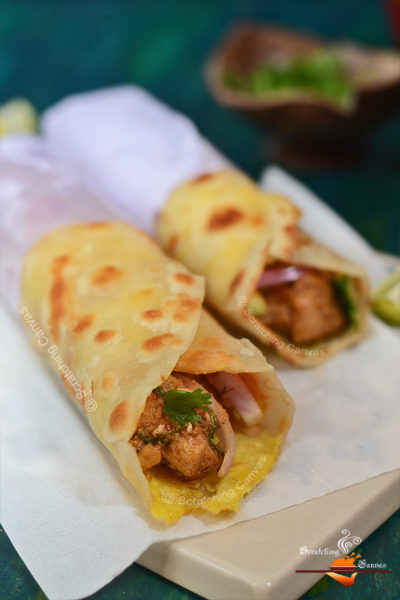
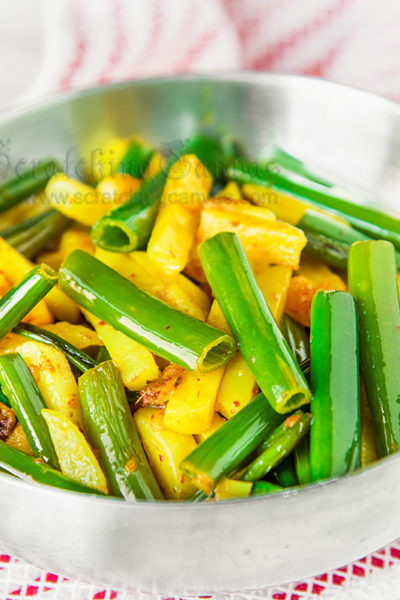
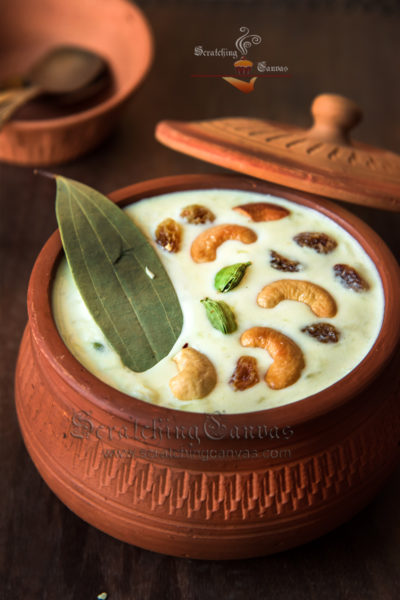
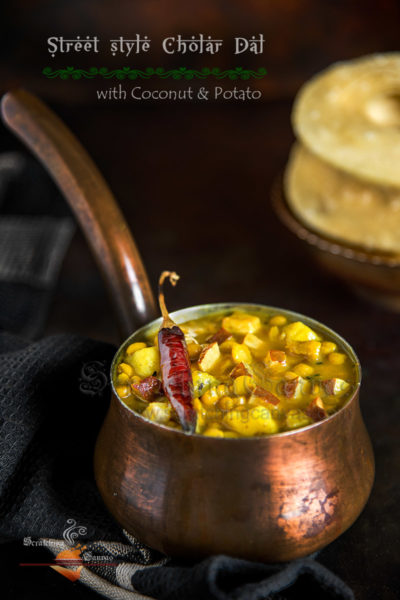
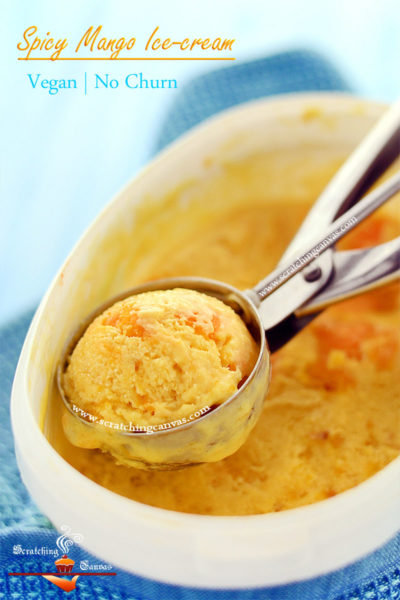
Very healthy and yummy